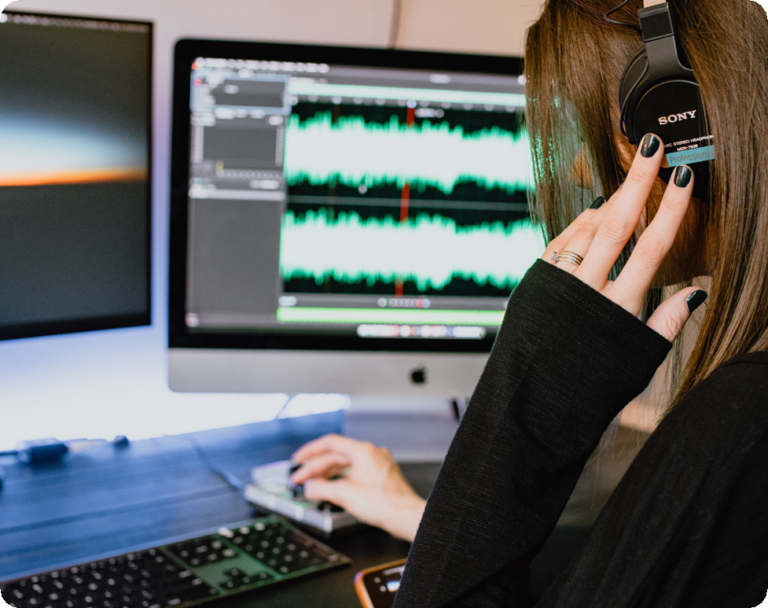Legal Transcription Services
Need to transform spoken material into useful legal evidence?
With LingPerfect, we can assist your legal transcription needs in over 200 languages.

Why manage your legal transcriptions professionally?
Fact 1: Your court case may depend on a single word
Whether it’s trial tapes, a deposition, or court proceedings, accurate transcriptions cannot be downplayed. Your legal case might depend on a single utterance.
Fact 2: A good legal transcriptionist isn’t enough
Audio or video files may come in very poor quality, which means that special software may be required to make the utterances intelligible enough to be transcribed.
Fact 3: Dealing with a multilingual audio or video file?
The files on which your legal case rests might often come in many languages. So besides handling transcription, you will also need to hire a professional translation agency. That’s double the workload.
Fact 4: Your legal transcriptions may need document certification
Any transcription file you present in court will need to be accompanied by an official certification that attests to its accuracy. That requires yet another step for your to handle.
Types of legal transcription services
Verbatim legal transcription services
Clean transcriptions
Edited legal transcriptions
Need an urgent legal transcription?

Additional benefits of appointing your legal transcriptions to a trusted partner
1. Cost savings
A paralegal’s or a court reporter’s salary is much higher than a professional legal transcriptionist’s.
In addition, when outsourcing the transcription, you pay for the volume of work, not a fixed salary.
2. Scalability
When you are in the middle of a trial, you can’t predict the amount of material that is going to come up in discovery.
We have the capacity to easily ramp up the number of transcribers, if necessary.
3. Native-language transcriptionists
We only work with experienced, native transcriptionists. And we can provide you with assistance in over 200 languages.
Looking at getting the best legal transcription service?
Look no further. At LingPerfect, we have the experience to cater to all your legal needs.

13,000+ Professional translators with industry-specific expertise
Every industry has its own specificities. That's why we always pair you with certified professional translators with domain-related experience.

ISO 9001:2015 & 17100:2015 certified quality assurance process
Our rigorous QA processes and KPIs make sure your localized websites are error-free and adhere to your terminology and tone of voice.

Scalability & boutique approach with dedicated staff
Whatever the size of your project, we always customize the approach to best suit your needs. And you get a dedicated account manager to assist you in every step of the process.
All your transcription requirements taken care of
- Administrative hearings
- Appeals
- Legal pleadings
- Motions
- Interrogations
- Multi-language conversations
- Depositions
- Wills
- Video-call interviews
- Court tapes
- Witness testimony
- Legal briefs
- Wiretaps
- Public hearings
- Minutes of meetings
Legal transcription services FAQ
It depends on the type of transcription you need. Verbatim transcriptions tend to be more expensive because they are more time consuming. A clean transcription (also known as the intelligent verbatim) will be cheaper.
In addition, the turnaround times you require may impact the final cost estimate. To get the most accurate picture, hover over to “Request a quote” and share your requirements. Our expert will provide you with the best, tailor-made quote.
Legal transcriptionists (or transcribers) listen to the audio or video recordings and transcribe them into various types of legal documents like memorandums, interrogations, correspondence, and discovery.
The industry standard dictates a 1 – 6 ratio: it takes six minutes of work to transcribe one minute of audio. Though the actual time varies depending on the quality of the audio, any possible hard accents to decipher, and other elements.
